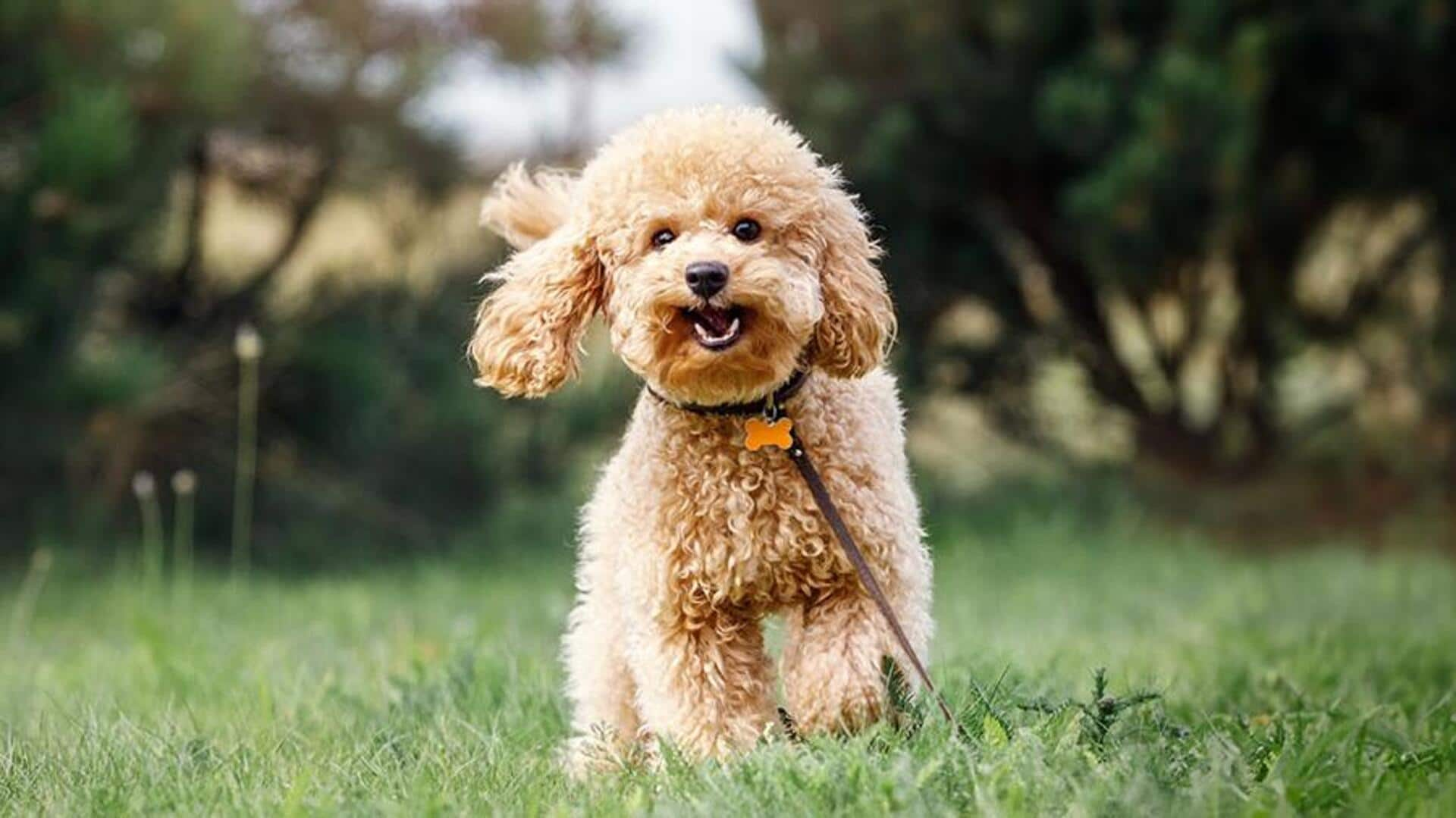
Poodle dog: A nutrition and training guide for good health
What's the story
Poodles are a beloved breed known for their intelligence, elegance, and hypoallergenic coats.
These active dogs come in three sizes: standard, miniature, and toy, each with unique needs.
Poodles are prone to certain health issues that can be mitigated with proper care.
Their distinctive curly fur requires regular grooming, and their sharp minds need engaging training.
Here's how to take care of them.
Tip 1
Nutrition
Poodles require a balanced diet rich in protein to support their energetic lifestyle.
It's essential to feed them high-quality dog food tailored to their size and age.
Standard Poodles will benefit from larger kibble that promotes chewing, while miniature and toy varieties may need smaller-sized bites.
Be mindful of overfeeding as Poodles can easily gain weight, especially if they are less active.
Tip 2
Grooming
Grooming is paramount for a Poodle's health and well-being.
Their coat needs regular brushing to prevent mats and tangles daily for toys and miniatures, and at least every other day for standards.
Professional grooming every three-six weeks is also recommended to maintain their stylish look.
Don't forget ear cleaning and nail trimming to keep your Poodle in top shape.
Tip 3
Training
Poodles are highly intelligent and thrive on mental stimulation.
They love to learn and are among the easiest breeds to train.
Start obedience training early using positive reinforcement techniques.
They excel in agility courses which can be a fun way to exercise both their bodies and brains.
Consistency is key; short, frequent training sessions will keep your Poodle engaged and eager to learn.
Tip 4
Healthcare
The same bacterial and viral diseases that affect other dogs can also affect standard poodles.
Regular veterinary checkups are crucial for maintaining your Poodle's health.
They're susceptible to certain genetic conditions such as hip dysplasia, eye disorders, and von Willebrand's disease, a blood clotting disorder.
Keep up with vaccinations, heartworm prevention, and dental care, and address any signs of illness promptly with your vet.
Tip 5
Socialization
Socializing your Poodle from a young age will help them become well-adjusted adults.
Introduce the dog to your home, backyard, and surrounding areas. Take it on a walk about the neighborhood after that, showing it things like vehicles, people, and other animals.
This exposure reduces anxiety and fearfulness while promoting a confident demeanor.
Remember that socialization is an ongoing process throughout your dog's life.
Tip 6
Exercise
Poodles have high energy levels that require regular exercise especially the larger standard variety.
Ensure they get plenty of physical activity daily through walks, runs or playtime in a secure area.
This not only keeps them fit but also helps prevent behavioral issues stemming from pent-up energy.
Agility training, swimming, and fetching are some common exercises you can help them learn.